Speaker Information
Presentation Overview
Speaker Ready Room
Presentation information for Students, Post Docs and Young Investigators!
Presentation Overview
Speakers are requested to review the conference schedules available on the conference website. Please note that minor schedule changes may continue to be made. Schedules are available at: http://www.iscb.org/ismb2010-program
All parallel sessions are 25 minutes in length and there are four (4), 25 minutes sessions scheduled in the morning and afternoon. Speakers are asked to be available at the presentation room 10-15 minutes before the start of the first presentation.
Speakers should prepare a 20-minute presentation. The additional time will allow for movement to the podium and the opportunity to respond to one or two questions. Each room will have a presentation timer and sessions are chaired to ensure the program schedule is adhered to.
Speaker Ready Room:
Please visit the Speaker Room at least one (1) day before your presentation. A technician will be there and available to assist you to place your presentation on the main presentation computer for transfer to the computer in your presentation room.
Delegates with presentations developed on Apple computers may use their own Apple computer but are requested to meet with the technician in advance so that details can be coordinated regarding the procedure for using the Apple computer for presentations. It is recommended that Apple computer users bring their own cable adapters to connect to the presentation projectors.
The speaker room is located in Room 313, Hynes Convention Center, Level 300 – you can ask the volunteer staff at the Information desk for directions. It is available to conference speakers to review their conference presentations and to transfer their presentations to the meeting room they will present in.
Speakers Room Hours
Saturday July 10, 8:00 a.m. – 5:00 p.m.
Sunday, July 11, 8:00 a.m. – 6:00 p.m.
Monday, July 12, 8:00 a.m. – 6:00 p.m.
Tuesday, July 13 8:00 a.m. – 3:00 p.m.
Information about the presentation computers The PC's are configured as follow:
Windows XP SP3
Office 2007
Media Play 11
QuickTime
Adobe Reader 9.x
IE 8
Fire Fox 3.6
Window XP
Don't use "embedded fonts" in PowerPoint especially if there's video/audio or any other linked information in the presentation. Make sure that the Powerpoint file and video / audio-clips are put into the same folder.
Speaker Tips
Click here to download speaker tips
Attention Students, Post Docs and Young Investigators!
Please read these helpful tips on giving a quality talk at ISMB 2010.
As you prepare to give an oral presentation at ISMB 2010, the following are some helpful tips for ensuring that both you and the international and interdisciplinary conference audience get the most out of your talk. As some talks will be recorded for viewing by our community for years to come, following these tips can also serve to make certain your best possible presentation serves you well in your future career.
Limit the number of slides to be presented.
A common mistake among presenters at all levels of experience is including too many slides for the allotted presentation time. We have all attended talks where the presenter either had to rush through or skip entire sections of slides due to having too many slides for the amount of time allotted to the talk. Worse is the presenter whose talk goes beyond the allotted time, and he or she ignores the session chair and/or session timer in order to give the full presentation detailed in the slides.
A rule of thumb is to have just one robust and informative slide for each minute of the presentation. Two or more slides per minute is sometimes possible, but this typically only works if half of the slides are updates to the slides shown before them, rather than completely new slides of different information. Keep in mind that an oral presentation slot has a time limit, and it will never be enough to fully explain all of your research efforts and results. The goal should be to give enough of an overview, with just enough depth, to make the audience understand your project, believe in your results, and pique their interest to follow up for further information available in your paper, on the web or in a follow up conversation with you after the talk.
ISMB is a conference of several parallel sessions that must all start and stop at the precisely scheduled time, so if some talks go beyond the allotted time limit the entire schedule could be thrown off. With over 150 scheduled talks, one can imagine the havoc that this could create. Therefore, the ISMB schedule will be strictly adhered to by the session chairs, and presenters must be cut off if they are unable to finish their presentations on time. Please ensure you are not one of those presenters!
Prepare slides that show well from a distance.
There are two important aspects of slide preparation: Visibility and readability.
Regarding visibility, color backgrounds and text can look great on a computer screen but awful when projected, and some colors don't display well under any circumstances. Microsoft has some tips on this subject that, for the most part, apply to any presentation software (see http://office.microsoft.com/en-us/powerpoint/HA010120721033.aspx). Important details can fail to be projected with the wrong use of colors, so keeping colors simple and compatible is a safe bet.
Regarding readability, the devil is always in the details, and the highly data-driven aspect of computational biology can make this tip hard to follow. But, if a slide has too much data squeezed into it most audience members will not be able to see or decipher the data. If the data is important for the audience to see or follow, such a slide will serve little or no purpose.
So, this tip is intended to encourage you to consider the data included in your slides. Is it essential for the audience to be able to see it to understand it? If yes, go with simple colors and find ways to highlight and feature the most relevant data through the bold and/or color graphics such as arrows, circles, or magnified zoom options available in your presentation software.
It is also to your benefit to give your slides to the technical staff as early as possible and ask to check out how each slide displays under the actual projection display environment. This will give you time to make changes if the layout shifts using the equipment of the venue, and/or if the color washes out and needs to be changed.
Practice, practice, practice.
You can never over-rehearse an oral scientific presentation. Although slides will prompt you through each topic, it is important to practice out-loud several times. This will help you develop a suitable pace, attain a natural rhythm, and try out several options of words and phrases to find the ones that best communicate your research. It will also ensure you are able to make it through all of your slides without running out of time. If after a few run-throughs you still cannot meet the time limit, you will need to make adjustments.
Practicing is important for everyone, but it can be even more important if English is not your native language. The conference is expected to have attendees from over 50 countries. Because you will be communicating to many other non-native English speakers your pronunciation should be well exercised. If at all possible, you should ask a family member, friend, colleague from your lab or your advisor to listen to at least one practice session so you can work out the nerves of speaking to a live audience and gain valuable feedback. If possible, self-recording your presentation is another valuable tool.
Practice sessions should start well before you travel to Stockholm. Please make time the night before your talk to practice again. If you are scheduled to give a 20-minute talk, you should schedule one full hour of practice time that final night to allow yourself at least two or three rehearsals.
Each time you practice you will say things slightly differently, which is fine. When you give the actual conference presentation from the podium, it should sound like you have given this talk before, but not sound like you are reading from a script.
Relax and learn from your presentation experience.
Each time you give a talk you will improve your presentation skills and gain confidence in your public speaking abilities. Pay attention to what you did well and where you might have room to improve, and make a note of it for your next talk.
Whether this is the first for fifty-first time you are speaking at a major international conference, you will likely become nervous as the time of your talk approaches (even if you have given this same talk before). These nerves will likely stay with you as you start to give your talk. But, please know that almost everyone experiences this. The audience is interested in your presentation and not nearly as aware of your nerves as you are. Take a deep breath and try to slow down if needed - many speakers talk too fast when they are nervous. If you have rehearsed in advance, the nerves will subside as you hit your stride and you will do very well.
Last but not least, thank you!
There are many conference options these days, but none that are as large and internationally diverse in the field of bioinformatics/computational biology as this one. Thank you for choosing to submit your research to ISMB 2010, and congratulations on having your work accepted for presentation. We hope this proves to be a positive experience, and that we will see you again at many more ISMB and ECCB conferences in the future.
Sincerely,
Your ISMB Conference Organizers
p.s. For additional oral presentation tips, please read "Ten Simple Rules for Making Good Oral Presentations" in ISCB's official open access journal, PLoS Computational Biology, at http://www.ploscompbiol.org/article/info:doi/10.1371/journal.pcbi.0030077 .

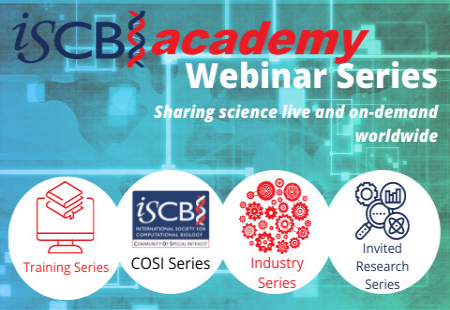

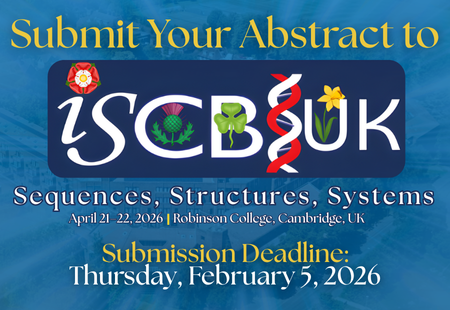
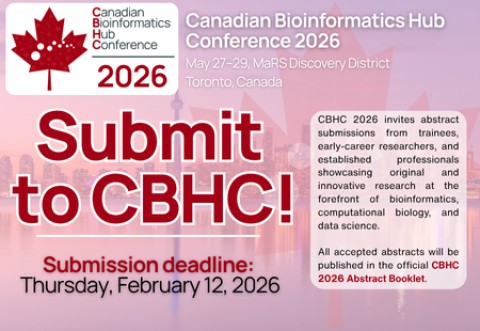
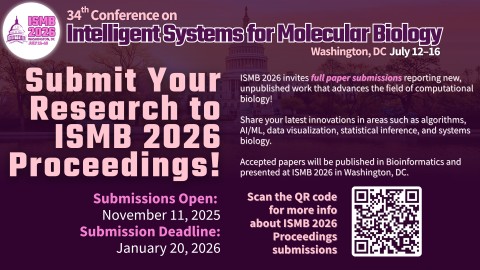






















 Ian Lawson Van Toch was a 23 year old Medical Biophysics graduate student at the University of Toronto when he passed away very suddenly and unexpectedly in August 2007 due to a rare form of heart disease.
Ian Lawson Van Toch was a 23 year old Medical Biophysics graduate student at the University of Toronto when he passed away very suddenly and unexpectedly in August 2007 due to a rare form of heart disease.


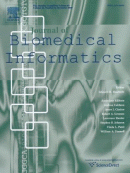 JBI (Journal of Biomedical Informatics) editorial board members in attendance at the ISMB meeting will serve as the selection committee for the JBI Award for Best Paper in Translational Bioinformatics. The finalists' papers will be identified by the selection committee in consultation with the Chair of the ISMB Scientific Program Committee, and will be announced at the end of the meeting.
JBI (Journal of Biomedical Informatics) editorial board members in attendance at the ISMB meeting will serve as the selection committee for the JBI Award for Best Paper in Translational Bioinformatics. The finalists' papers will be identified by the selection committee in consultation with the Chair of the ISMB Scientific Program Committee, and will be announced at the end of the meeting.
 the United States
the United States



